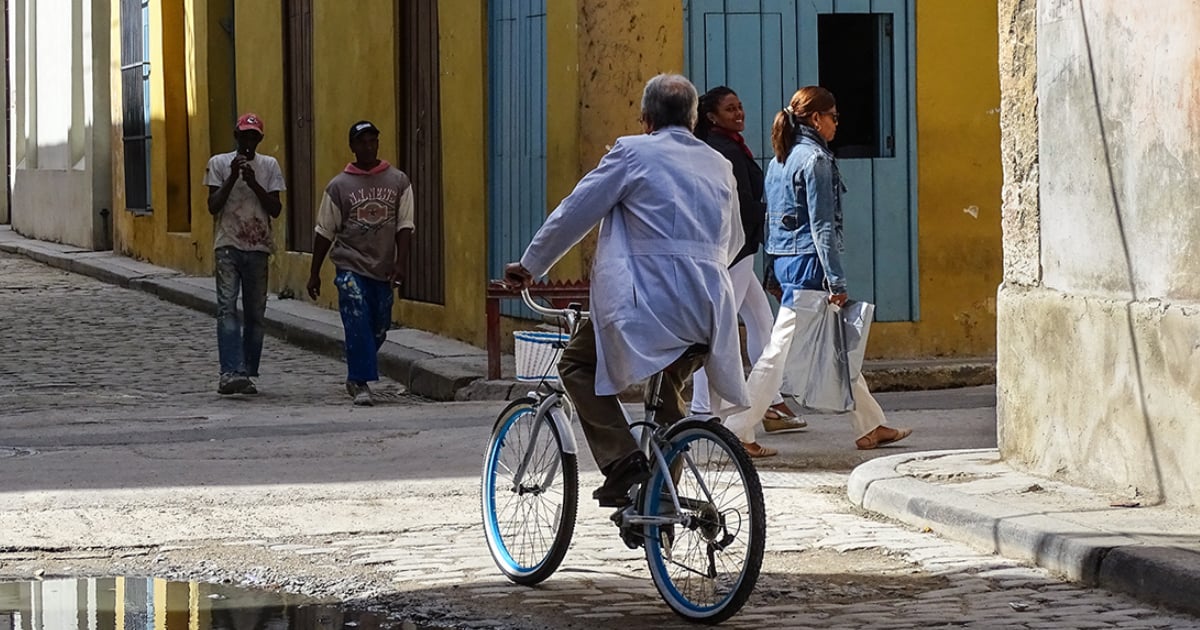
While the Cuban regime dedicates speeches and praises to doctors on Latin American Medicine Day, the harsh reality faced by healthcare staff in medical facilities is characterized by an alarming shortage of essential medications and supplies, a situation that seriously endangers patients' lives and hampers their ability to perform their duties.
In a message posted on social media platform X, the Minister of Public Health, José Ángel Portal Miranda, praised Cuban doctors, describing them as a "symbol of humanity and resilience."
However, this statement sharply contrasts with the reality faced daily by healthcare professionals on the island, who, far from being recognized by the regime with decent working conditions, are forced to pursue their vocation amid a health crisis characterized by severe shortages of medications, basic supplies, and medical equipment.
The "resistance" mentioned in the message is nothing more than a reflection of the sacrifice that Cuban doctors endure, as they must fight not only against diseases but also against a collapsing healthcare system.
Paradoxically, that resilience praised by high-ranking government officials is the same one that has left thousands of professionals exhausted, without resources, and forced to face critical situations that jeopardize both patient health and their own well-being.
However, from the government leadership, the demands of health professionals are being ignored while a triumphant discourse completely disconnected from reality continues to be perpetuated.
Cuban leader Miguel Díaz-Canel once again attributed the collapse of the healthcare system to the recurring argument of the "blockade," presented as a universal explanation for the myriad problems plaguing the country, according to the official narrative.
On his X account, the leader expressed words of praise for healthcare workers, highlighting their dedication and calling them the "pride of the nation," all while keeping them imprisoned in an oppressive regime that restricts their freedom of movement.
Furthermore, he once again blamed the "blockade" for the shortages they are facing, avoiding mention of the internal deficiencies that exacerbate the crisis in the healthcare system.
The crisis of the healthcare system in Cuba: Challenges faced by doctors
Among the main problems faced by doctors in Cuba are the shortages of medications and supplies, which severely limits their ability to treat patients, forcing them to resort to inadequate alternatives such as the black market.
This is compounded by the deterioration of hospitals, where a lack of maintenance and minimal hygienic conditions put both patients and healthcare personnel at risk, reflecting the neglect of the system.
The massive exodus of doctors exacerbates the situation, leaving healthcare centers understaffed, particularly in key specialties, which directly impacts the quality of medical care in the country.
Finally, insufficient salaries are a key factor driving this crisis, forcing many doctors to seek alternatives abroad or in other fields to make ends meet.
In addition to this scenario, like the rest of the Cubans, doctors must contend with daily issues such as rampant inflation, shortages of basic food items, and frequent blackouts, which further complicate their daily lives and their ability to perform their professional duties under minimally acceptable conditions.
Frequently Asked Questions about the Health System Crisis in Cuba
What is the current situation of the Cuban healthcare system?
The Cuban healthcare system is facing a severe crisis marked by a shortage of medications, basic supplies, and medical personnel. This situation has been exacerbated by poor internal management and the massive exodus of healthcare professionals, which impacts medical care on the island.
What arguments does the Cuban government use to justify the crisis in the healthcare system?
The Cuban government, led by Miguel Díaz-Canel, attributes the crisis in the healthcare system to the U.S. embargo, arguing that the "shortages and difficulties" are a result of this blockade. However, it has also been noted that disproportionate investment in tourism and a lack of self-criticism exacerbate the situation.
How does the health system crisis affect Cuban doctors?
Cuban doctors face precarious working conditions, with low salaries, a lack of essential resources to care for patients, and increasing pressure that leads many to consider emigration as their only option. Additionally, they are subject to travel restrictions that limit their freedom of movement.
What measures has the Cuban government taken in response to the health crisis?
The Cuban government has chosen to send doctors abroad as part of international missions, while the domestic healthcare system remains neglected. Although there have been promises to improve conditions, effective solutions to address the shortage of medications and enhance hospital infrastructure have not been implemented.
What impact does the healthcare system crisis have on the Cuban population?
The Cuban population is suffering the consequences of a collapsed healthcare system, with limited access to medications and adequate medical services. The lack of resources and available medical personnel exacerbates healthcare, leaving citizens in a vulnerable situation.
Filed under: